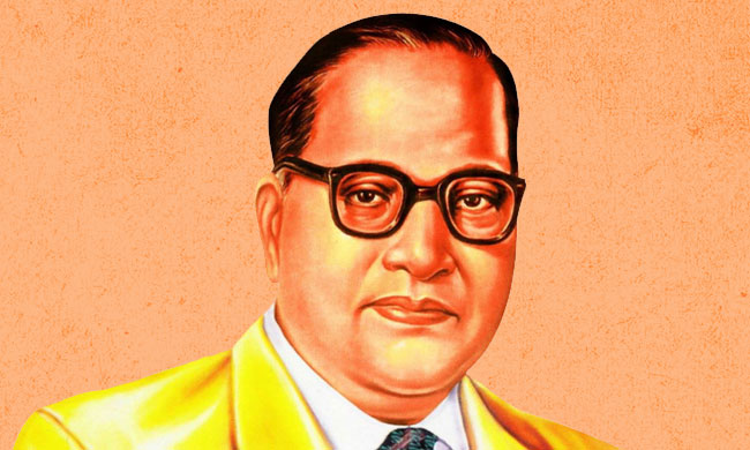[On Death Anniversary]Ambedkar's Internationalism And Anti-Discrimination Discourse
Anurag Bhaskar
6 Dec 2019 4:47 PM IST

Dr BR Ambedkar
Few months after the demise of B.R. Ambedkar on 6th December 1956, Ram Manohar Lohia wrote to one of his closest associates (Madhu Limaye) that Ambedkar could be shown to the outside world as "a symbol of upright India". While Lohia would have said this because of Ambedkar's enormous contributions in reforming India, the latter's works and efforts provide us with a platform to build a global anti-discrimination discourse.
Ambedkar developed his ideas for the Indian Constitution by studying different constitutions of the world. But, the United States Constitution, with its combination of a written text, including a list of fundamental rights, and common law interpretive traditions, was — in Martha Nussbaum's words — "his model for India". In an interesting work on the legal practice of Ambedkar, Rohit De has stated that since his days in the United States, Ambedkar had been a fan of the 14th Amendment of the United States Constitution, which, according to his belief, helped guarantee freedom for African Americans. Furthermore, Ambedkar had made efforts to internationalize the issue of untouchability in mid-1940s, before he was requested to head the Drafting Committee to frame the Indian Constitution. In July 1946, Ambedkar had contacted prominent African American intellectual and activist, WEB Du Bois, to inquire about the National Negro Congress' petition to the United Nations (U.N.), which attempted to secure minority rights through the U.N. council. Ambedkar explained that he had been a "student of the Negro problem", and that "[t]here is so much similarity between the position of the Untouchables in India and of the position of the Negroes in America that the study of the latter is not only natural but necessary". In a letter dated July 31, 1946, Du Bois responded by telling Ambedkar he was familiar with his name, and that he had "every sympathy with the Untouchables of India". Ambedkar was a pragmatic and he was using the existing anti-discrimination discourses to build his case for an equal nation.
Ambedkar focus on global anti-discrimination narrative could have been influenced by another social revolutionary, Jyotirao Phule — whose works Ambedkar followed. In 1873, Phule had written his scathing work on caste system — "Gulamgiri" (Slavery), which began with a dedication to American abolitionists who fought the Civil War in the United States in 1860s to end the institution of slavery. Phule wrote, "[I]n an earnest desire that [Indians] may take their (American abolitionists) example as their guide in the emancipation of their [lower castes brethren] from the trammels of [upper caste enslavement]". Phule's "Gulamgiri" was a tribute to American anti-slavery movement.
Ambedkar's discourse finds similarity in other historical events as well. In 1903, WEB Du Bois had famously said, "The problem of the Twentieth Century is the problem of the color line". When India attained independence from colonial rule, Du Bois saw it as a shining example for the rest of the "darker nations". The Civil Rights Movement in America was also inspired by the freedom movements that erupted across African countries in the late 1950s. As Professor Michael Klarman has written in his book "Unfinished Business: Racial Equality in American History" (2007), "The successful efforts of African colonies to win independence demonstrated to American blacks the feasibility of racial change through collective action". In a trip to South India in 1959, Dr Martin Luther King was going to speak at a school, which comprised mainly of Dalit children. The principal of the school introduced Dr King to the children as a "fellow untouchable". This incident heavily influenced King's thinking. Few years later, he recounted, "… for a moment I was shocked and even peeved that I would be referred to as an untouchable… [But, I then stated to think] about the fact that 20 million of my brothers and sisters were still smothering in an airtight cage of poverty in an affluent society. And as I thought about this, I finally said to myself, yes, I am an untouchable and every Negro in the United States is an untouchable".
An anti-discrimination narrative focusing upon shared legacies of different social reformers and movements across different countries can be helpful in tackling contemporary global social challenges. Transnational alliances and advocacy on social justice can be more effective in pressing demands for equal rights, addressing inequalities and providing a broader rights-based approach. Ambedkar's life provides us with a starting point for this.
Anurag Bhaskar (LLM'19 from Harvard Law School) is Contributing Editor of Live Law. He tweets at @anuragbhaskar_


